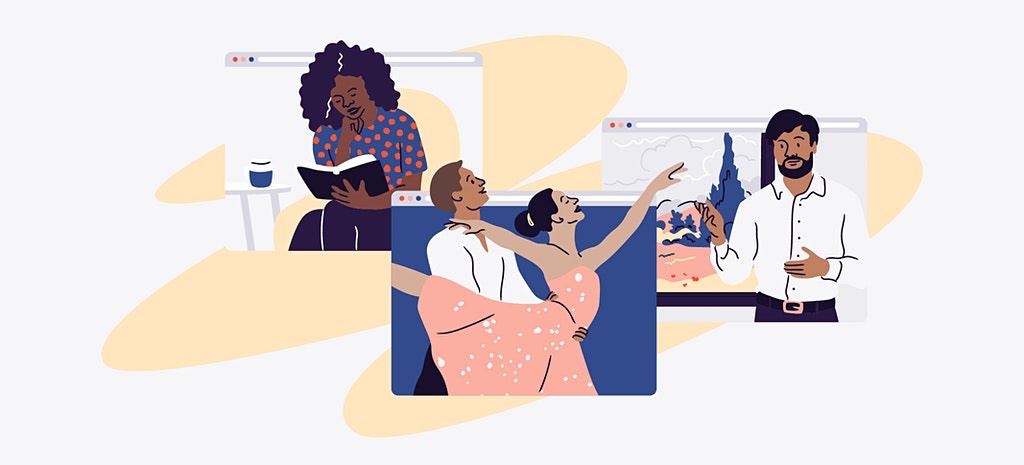Since the pandemic began in early 2020, societies have had to adapt to a brave new world of online meetings, events and hangouts. Facing a challenge no students had ever encountered, Trinity’s societies rose to the occasion, guiding their members through one lockdown after another. From virtual coffee mornings, guest speakers via Zoom and even online plays and performances, our students made the best of a difficult situation. As we slowly edge closer toward normal student life, and with it face-to-face society events, what impact has their time online had on our students and our societies?
Naturally, an online event can never replace the atmosphere of an in-person gathering. For most, Zoom interactions are slightly awkward and interrupt the natural flow of face-to-face conversation. Particularly for last year’s first year students, joining societies and meeting people via Zoom was extremely challenging.
Gone was the ability to show up at an event, start chatting to whoever happened to be next to you and walk away with a new found friend, or at least a friendly face for the next meetup. Suddenly, members had to speak in front of a group of strangers, an intimidating prospect at the best of times, made worse by its online medium.
Societies made every effort in their power to reduce this awkwardness and facilitate one-on-one interaction through breakout rooms, icebreakers and games. In an anonymous survey, one student noted that “breakout rooms can be used to create that feeling of talking to people nearby (since often zoom events can be taken up by one or two people talking to each other).” Breakout rooms have been vital in creating the connection between students that has been lost in our time away from campus. Societies have played an enormous role in bringing students together outside the virtual classroom to build friendships and escape the loneliness of lockdown.
Not only has the world of online social interaction been a challenge for society members, it has been an unprecedented dilemma for their committee members. Hosting online events that remain engaging, entertaining and welcoming via a Zoom link is a remarkable feat and Trinity’s societies have managed to excel at it.
Speaking to Eva O’Beirne, Correspondence Secretary of the College Historical Society (the Hist), she noted that maintaining audience participation was the biggest challenge. She explained: “Each online event has to be fresh and interactive — no one wants to sit on a Zoom call anymore.” O’Beirne also cited a lack of guidance from the university as an additional obstacle to organising online events. “It was and still is a DIY situation which is both fun and challenging.”
As we emerge from over a year of online college, will virtual events become a thing of the past? While hopes remain high for on campus activity to resume fully by the end of 2021, online events may become a permanent feature of annual society activities. For certain society functions, including guest speakers who may live in another country and could be interviewed via Zoom, the online world provides real advantages.
Online events may facilitate more attendees, where seating and space constraints do not apply, and may be more convenient for the busy college student. Virtual events may become one of the many strengths of our societies, diversifying their activities and broadening their impact.
As students eagerly return to campus this September, societies will once again have to adapt to a new frontier of socially distanced activities. Whether or not the virtual society experience will fade into the background remains to be seen and is up to the members of each society to decide. What is for certain is that societies have never been a more necessary part of student life. The solace students have sought from societies during one of the most challenging periods in human history cannot be underestimated and will never be forgotten.






